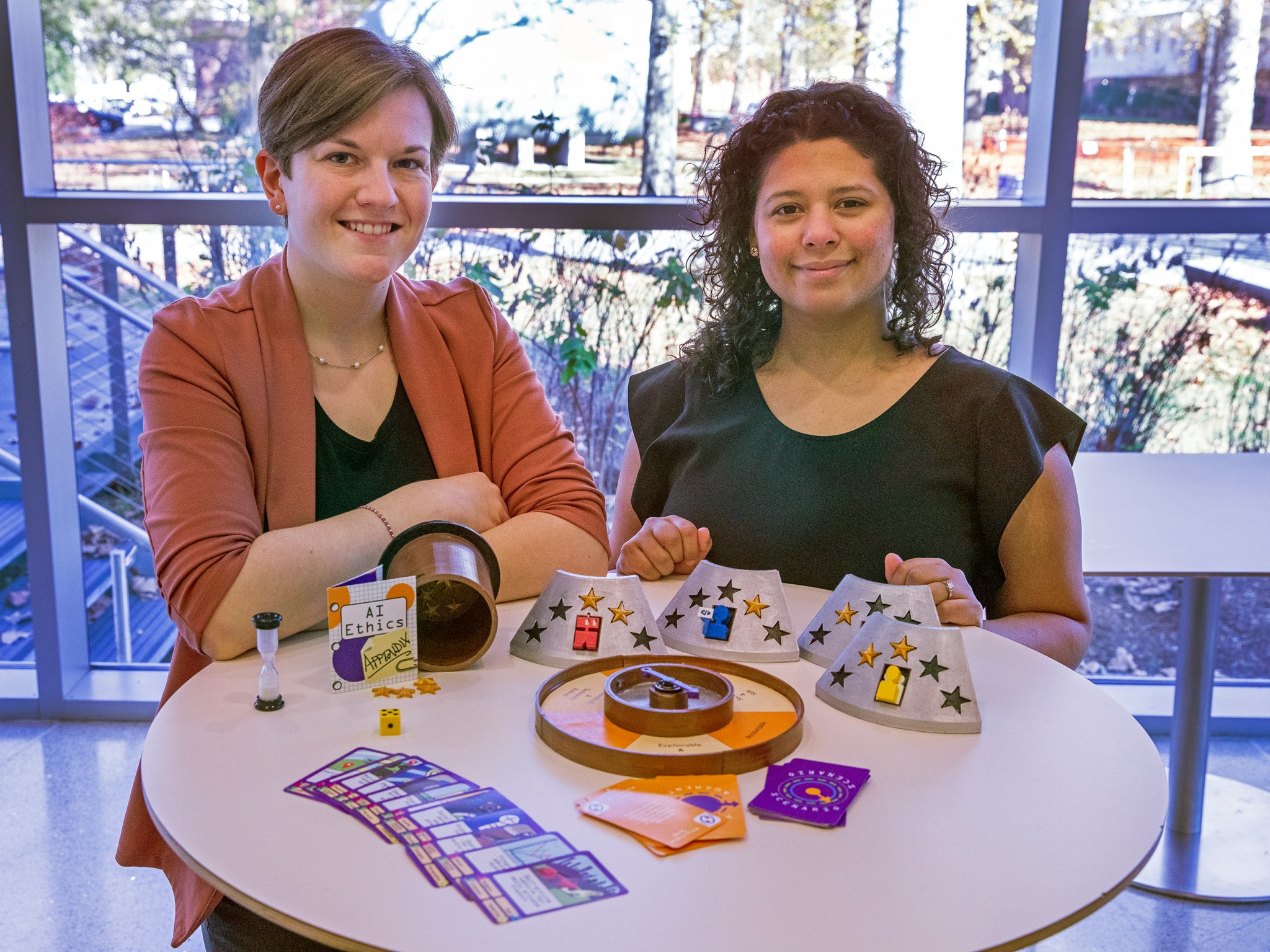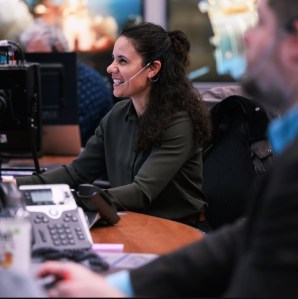The future of artificial intelligence (AI) ethics is being played out right now — on a board game. The Office of the Chief Information Officer (OCIO) team hopes to begin integrating the use of ethical AI, so interns Cristina Morales Mojica and Jessica Robinson were tasked with developing a prototype that uses interactive gameplay to encourage users to think carefully and ethically about the decisions made with AI.
Mojica is completing her third semester working on this project, while Robinson, who has also interned at NASA for three semesters, is joining the team for the first time. The pair are able to collaboratively utilize their technical and theoretical knowledge, as well as their creative skills to bring the project to life.
Robinson, who earned bachelor’s degrees in both electrical engineering and communications and media arts before starting her Master’s in Fine Arts in emerging communication technologies, said she used to feel as if her “brain was always pulled two different ways.” She said working on this project has been her most meaningful internship experience, because she’s been able to combine her passions for art and engineering.
Meanwhile, Mojica, who is working on her Ph.D. in computer science, found her interests shifting towards human-computer interactions, specifically user interface with medical technologies. Her work focuses on the theoretical aspects underpinning the game, as well as building a digital cloud repository.
The game features a variety of scenarios that may arise with the use of AI and allows players to debate these scenarios from the perspectives of different “stakeholders”: the developers, the users, the unintended users, or the AI itself. Players roll dice to decide who debates each round, and the remainder of players vote on the strongest argument. The intention is to encourage engineers and AI users to contemplate scenarios from other perspectives, fostering more ethical decisions around the use of AI.
The interns plan to complete not only a physical prototype of the board game, but also hope to build a digital repository to enable the storage of scenario cards and allow developers to add additional scenarios as they come across them in their work. They hope to allow for virtual gameplay via this cloud repository, as well as to enable 3D printing of the game, so users can play at home.
The pair are excited about the game, and hope that this collaborative gameplay will be more engaging and entertaining than a traditional training scenario for the development of AI ethics.





























